Related Research Articles
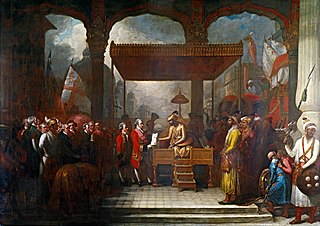
1765 (MDCCLXV) was a common year starting on Tuesday of the Gregorian calendar and a common year starting on Saturday of the Julian calendar, the 1765th year of the Common Era (CE) and Anno Domini (AD) designations, the 765th year of the 2nd millennium, the 65th year of the 18th century, and the 6th year of the 1760s decade. As of the start of 1765, the Gregorian calendar was 11 days ahead of the Julian calendar, which remained in localized use until 1923.

Catherine IAlekseevna Mikhailova was the second wife and empress consort of Peter the Great, and Empress Regnant of Russia from 1725 until her death in 1727.

Catherine II, most commonly known as Catherine the Great, was the reigning empress of Russia from 1762 to 1796. She came to power after overthrowing her husband, Peter III. Under her long reign, inspired by the ideas of the Enlightenment, Russia experienced a renaissance of culture and sciences, which led to the founding of many new cities, universities, and theatres, along with large-scale immigration from the rest of Europe and the recognition of Russia as one of the great powers of Europe.

The Smolny Institute is a Palladian edifice in Saint Petersburg that has played a major part in the history of Russia.
St Mary's College is a private Catholic primary and secondary school for girls located in the "square mile" of the city of Adelaide, South Australia.


The Hypatian Codex is a svod (compendium) of three letopis chronicles: the Primary Chronicle, Kievan Chronicle and Galician-Volhynian Chronicle. It is the most important source of historical data for southern Rus'. The language of this work is Old Church Slavonic with many East Slavisms.

An Institute for Noble Maidens was a type of educational institution and finishing school in late Imperial Russia. It was devised by Ivan Betskoy as a female-only institution for girls of noble origin. Those were "Closed female institutes of the Office of the Institutions of Empress Maria". The first and most famous of these was the Smolny Institute of Noble Maidens in St. Petersburg.
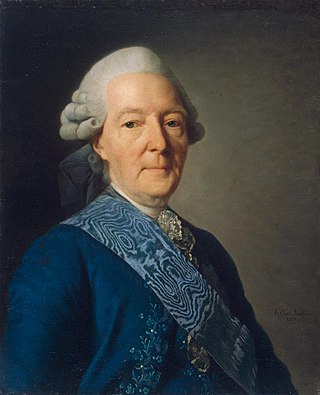
Ivan Ivanovich Betskoi or Betskoy was an educational reformer in the Russian Empire who served as Catherine II's advisor on education and President of the Imperial Academy of Arts for thirty years (1764–94). Perhaps the crowning achievement of his long career was the establishment of Russia's first unified system of public education.

The Russian Age of Enlightenment was a period in the 18th century in which the government began to actively encourage the proliferation of arts and sciences, which had a profound impact on Russian culture. During this time, the first Russian university was founded, a library, a theatre, a public museum, as well as relatively independent press. Like other enlightened despots, Catherine the Great played a key role in fostering the arts, sciences, and education. The national Enlightenment in the Russian Empire differed from its Western European counterpart in that it promoted further modernization of all aspects of Russian life and was concerned with abolishing the institution of serfdom in Russia. Russian Enlightenment didn't promote any changes for separation of church and state. Pugachev's Rebellion and the French Revolution may have shattered the illusions of rapid political change, but the intellectual climate in Russia was altered irrevocably. Russia's place in the world was debated by Denis Fonvizin, Mikhail Shcherbatov, Andrey Bolotov, Alexander Radishchev, and Ivan Boltin; these discussions precipitated the divide between the radical, western, conservative and Slavophile traditions of Russian thought. Intellectuals often used the term prosveshchenie, promoting piety, erudition, and commitment to the spread of learning.

Mother McAuley Liberal Arts High School is an all-girls Catholic high school located in the Mount Greenwood neighborhood of Chicago, Illinois at 3737 West 99th Street. It is located in the Roman Catholic Archdiocese of Chicago. Mother McAuley is the largest all-girls high school in the country.
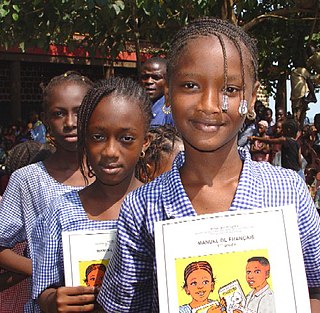
Female education is a catch-all term for a complex set of issues and debates surrounding education for girls and women. It is frequently called girls' education or women's education. It includes areas of gender equality and access to education. The education of women and girls is important for the alleviation of poverty. Broader related topics include single-sex education and religious education for women, in which education is divided along gender lines.

St Catherine's School is an independent and non-denominational Christian day and boarding school for girls, located in Toorak, an inner south-eastern suburb of Melbourne, Victoria, Australia.

Women in Russia have a rich and varied history during numerous regimes throughout the centuries. Since Russian society is multicultural, the experiences of women in Russia vary significantly across ethnic, religious, and social lines. The life of an ethnic Russian woman can be dramatically different from the life of women of minority groups like the Bashkirs and the life of a woman from a lower-class rural family can be different from the life of a woman from an upper-middle-class urban family. Nevertheless, a common historical and political context provides a framework for speaking about women in Russia in general.

The Age of Enlightenment dominated advanced thought in Europe from about the 1650s to the 1780s. It developed from a number of sources of “new” ideas, such as challenges to the dogma and authority of the Catholic Church and by increasing interest in the ideas of science, in scientific methods. In philosophy, it called into question traditional ways of thinking. The Enlightenment thinkers wanted the educational system to be modernized and play a more central role in the transmission of those ideas and ideals. The development of educational systems in Europe continued throughout the period of the Enlightenment and into the French Revolution. The improvements in the educational systems produced a larger reading public which resulted in increased demand for printed material from readers across a broader span of social classes with a wider range of interests. After 1800, as the Enlightenment gave way to Romanticism, there was less emphasis on reason and challenge to authority and more support for emerging nationalism and compulsory school attendance.
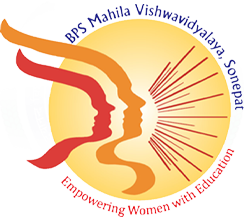
Bhagat Phool Singh Mahila Vishwavidyalaya, also known as Bhagat Phool Singh Women's University, is the first women's only state university of North India established by the Government of Haryana in August 2006 at Village Khanpur Kalan, of Gohana in Sonipat district.
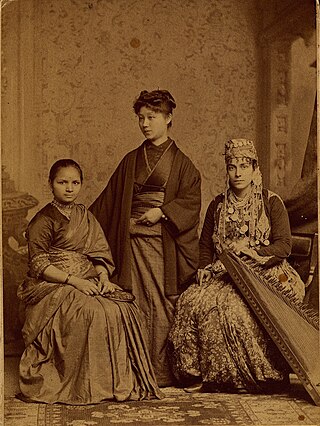
This is a timeline of women's education. It includes people, institutions, law reforms and events associated with the education of women in history worldwide.
The Institute of the Sisters of Charity of Saints Bartolomea Capitanio and Vincenza Gerosa (SCCG), also known as the Sisters of Maria Bambina (Sisters of Holy Child Mary) had its origins in a house which the people called "Conventino" (small convent) in Lovere, Italy. It was founded by a young woman of 26 named Bartolomea Capitanio in 1832. Bartolomea was helped in her project by Catherine Gerosa, a simple and wealthy lady of Lovere who later took the name of Sister Vincenza, in honor of St. Vincent de Paul.

Events from the year 1765 in Russia

The Smolny Institute of Noble Maidens of Saint Petersburg was the first women's educational institution in Russia that laid the foundation for women's education in the country. It was Europe's first public educational institution for girls.
References
- ↑ Bisha, Robin (2002). Russian Women, 1698–1917 Experience and Expression: An Anthology of Sources. Bloomington: Indiana University Press. pp. 162–163.